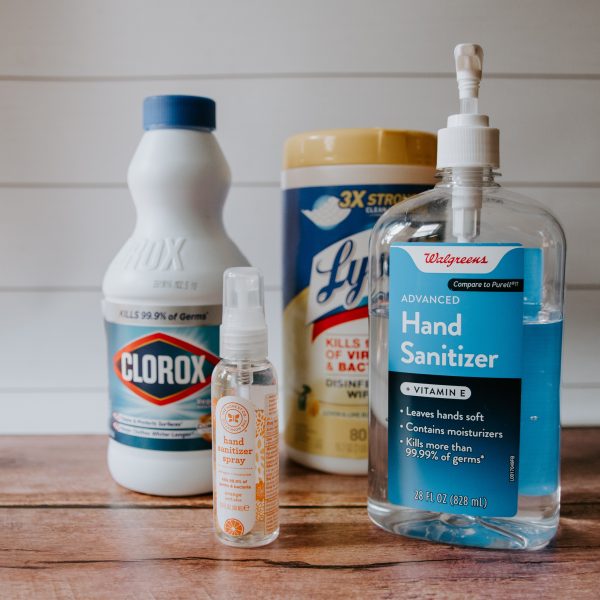New Rutgers recommendations for ECEC policy makers to prevent COVID-19 spread

A series of recommendations and specific measures for safer early childhood education and care (ECEC) delivery during the COVID-19 pandemic have been released by the Rutgers Pediatric Early Education Working Group, advising policymakers and administrators to enact systemwide changes to prevent the spread of the coronavirus.
The new recommendations outline specific measures for safer emergency childcare during the COVID-19 pandemic for parents with essential jobs. While adding specific guidance, the recommendations reflect consensus based on public health principles and guidelines from the federal government, states, and the American Academy of Pediatrics.
Although the guidance has been issued in the United States, many of the recommendations may be applicable to the Australian context, with the Rutgers group advising ECEC policymakers and administrators to:
- Support a set of broad, flexible options that include more care in homes, use of school facilities if needed, and smaller group sizes in all care settings to reduce opportunities for multiplication of exposures.
- Screen ECEC staff for risks in work assignments and follow daily screening procedures for children, families, and staff.
- Adopt procedures to reduce risk of transmission within centers and home care.
- Develop an information system to monitor and assess how things are going so that the ECEC system can aggregate their experiences to learn and improve quickly from them. This is especially important given the level of uncertainty and the rate at which the situation is changing.
Guidance for ECEC providers “will only be feasible if policy is aligned and adequate funding is forthcoming,” the Group said.
The easy spread of COVID-19 means precautions in ECEC settings are necessary, Lawrence Kleinman, Director of the Division of Population Health, Quality, and Implementation Sciences (PopQuIS in Pediatrics) at Rutgers Robert Wood Johnson Medical School said, adding “they’re also necessary to prioritise the safety of these children and families, along with their caregivers and educators when there is so much we don’t know about the virus”.
Dr Steven Barnett, Professor of Education, and Senior Co-director and Founder of the National Institute for Early Education Research (NIEER), said a systematic approach was required, which included education in a holistic view, with sharing of buildings and spaces to support educators to manage social distancing and other concerns.
Recommended ECEC service protocols include:
- taking temperatures of parents, children, and staff before entering the center or home;
- barring entry to anyone exhibiting COVID-19 symptoms;
- eliminating sign-in procedures that potentially spread COVID-19;
- staggering drop-off times and assigning a dedicated staff member to greet each child;
- using appropriate personal protective equipment, especially in infant and toddler care;
- disinfecting equipment after use; and,
- requiring staff to practice appropriate hygiene and social distancing protocol during working and non-working hours. Ideally, children of parents who regularly come in contact with COVID-19-infected individuals should be cared for at home — not in a childcare center — and cared for by one adult.
The Rutgers Group urged policymakers and providers to collect and use data, which they say is critical to further learning about how to prevent infection in childcare settings and improve these guidelines.
“Data enables us to continuously learn what works and what doesn’t,” said Manuel Jimenez, assistant professor of pediatrics in PopQuIS and director of developmental behavioural pediatrics at the Boggs Center on Developmental Disabilities at Rutgers Robert Wood Johnson Medical School. “We can then share this new knowledge with ECEC providers, who can then put it to use in their day-to-day operations.”
To read the recommendations in full, please see here.
Along with Drs Kleinman, Barnett, and Jimenez, the report was authored by Drs Patricia Whitley Williams and Alan Weller of the Department of Pediatrics.
Rutgers Pediatrics Early Education Working Group is a collaboration between the Rutgers Robert Wood Johnson Medical School Department of Pediatrics (Divisions of Population Health, Quality, and Implementation Sciences (PopQuIS) and Allergy, Immunology, and Infectious Diseases) and National Institute for Early Education Research at the Rutgers Graduate School of Education.
Popular

Quality
Practice
Provider
Research
Workforce
Honouring the quiet magic of early childhood
2025-07-11 09:15:00
by Fiona Alston

Workforce
Policy
Quality
Practice
Provider
Research
The silent oath: Why child protection is personal for every educator
2025-07-17 09:00:31
by Fiona Alston

Quality
Provider
Practice
Workforce
Affinity Education outlines safety review following criminal charges against ex-staff member
2025-07-14 09:18:08
by Fiona Alston











